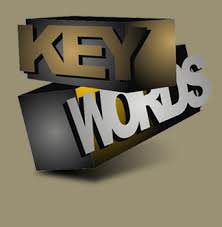When you are planning for the development of your website, you have to know what keywords to use for your content. This may require some research on your part. You can start by brainstorming for some keywords that you are familiar with, but when you have exhausted your own vocabulary, doing additional research can result in more relevant words. This article will talk about the approach you should take with keywords.
How to Target Keywords in Your Content for Higher Search Engine
Keyword research is looking for words and phrases that people will most likely use to look for you and business like yours. When you pick up some literature in your business industry, you will notice some industry terms and phrases that may recur over and over again. These would make good possibilities for keywords for your website.
 There are keyword generating tools that you can find online. Tools from Google and other third party services are available to you without charge. Experiment with them and see what kind of keywords you get back from these tools. Compare them to each other and determine which tool gives you the most relevant terms.
There are keyword generating tools that you can find online. Tools from Google and other third party services are available to you without charge. Experiment with them and see what kind of keywords you get back from these tools. Compare them to each other and determine which tool gives you the most relevant terms.
You should choose keywords that are focused on your niche. If you use words and phrases that are widely used or overused, it can get get diluted. If you focus on a narrow niche market, you can create a tighter list of words and your website will have a better chance to be ranked near the top.
Keywords should not be overused. You cannot just stuff a web page with keywords and think that the quantity will make your page more relevant. Not only will this method not improve your site rank, but it is a “black hat” strategy that will harm your current standing and may even get your website delisted.
Meta Title, Meta Keywords, and Meta Descriptions
Use your keywords in the meta title tags and description tags found in the header of your webpage code. Content from these two tags make up your entry when your site is displayed in search results. So, you can see why it is important to write good, compelling content for this limited amount space. Web users will set it and will decide whether or not they should click on your link.
A headline encompasses the core idea of the web page. The headline is coded by the H1 tag in your HTML. So, your most relevant keywords should be uses in the H1 tag. When a search engine crawler sees text in an H1 tag, it will index these words and place more weight on them in relation to your web page.
The rest of the content in your website should incorporate keywords, but only if these words make perfect sense in the flow of your content. You cannot force a keyword to be used if it does not sound right in context. That will do nothing to your page rank.
Starting with the right set of keywords will start you off in the right direction in good Google Local Optimization. Apply what you have learned and watch your website climb up in rank.